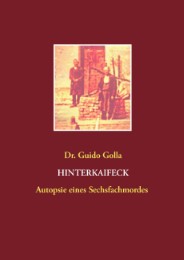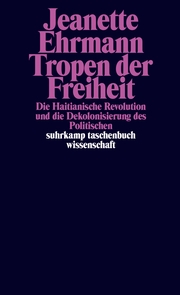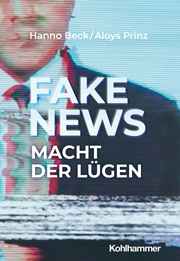What Do We Know about Civil Wars? (E-Book, PDF)
What Do We Know about Civil Wars?
eBook - What Do We Know about Civil Wars?
Bibliographische Informationen
Format: Digitale Rechteverwaltung: Adobe DRM
Beschreibung
Since World War II, civil wars have replaced interstate wars as the most frequent and deadly form of armed conflict globally. How do we account for when and where civil wars are likely to occur, when and how they are likely to end, and whether or not they will recur? In this timely book, leading scholars accessibly guide students through cutting-edge research on the onset, duration, outcomes, and recurrence of civil wars, as well as the ongoing consequences of conflicts in war-torn countries such as Syria, Sudan, and Rwanda. In mapping out the current state of our knowledge about civil conflicts, the authors also identify what we donot know about civil wars.
With a consistent approach across chapters and through a wide variety of cases, the contributors collectively help readers understand some of the most pressing questions in conflict and security studies and illustrates how scholars answer them. This authoritative text offers both an accessible and current overview of the state of the field and an agenda for future research.
The second features:
An entirely new chapter on pro-government militias and rebels as criminal groups (Chapter 16)Analysis of new trends in civil war data collection that have enabled us to understand geographic and temporal patterns of armed conflictNew directions in transitional justice institutions in post-conflict environments, the resource curse, the role of women, and the relationship between the environment and civil conflictNew material on mediation of conflict and peace agreement implementation, and peacekeepingExamples drawn from the Russia-Ukraine conflict.Autorenportrait
T. David Mason is the Johnie Christian Family Professor of Peace Studies Emeritus and Regents Professor of Political Science Emeritus at the University of North Texas. He co-founded UNT's Castleberry Peace Institute, which he directed from its inception in 2009 until 2014. He earned his Ph.D. degree from the University of Georgia in 1982. Mason served on the faculty of Mississippi State University from 1981 to 1992 and University of Memphis from 1992 to 2002, where he was a co-founder of that university's Benjamin Hooks Institute for Social Change. He served as Associate Editor ofInternational Studies Quarterly(2004-2007) and then Editor-in-Chief (2007-2008) of that journal. Mason served on the American Political Science Association's Task Force on Political Violence and was primary author of that group's final report chapter on how civil wars end. He is the author of Caught in the Crossfire: Revolution, Repression and the Rational Peasant(2004), Sustaining the Peace After Civil War(2007) and co-editorof Conflict Prevention and Peace-building in Post-War Societies: Sustaining the Peace(with James Meernik, 2006). His research on the politics of reform, repression, and civil conflict has appearedAmerican Political Science Review, Journal of Politics, Social Science Quarterly, International Studies Quarterly, Journal of Conflict Resolution, Journal of Peace Researchand other journals.
Sara McLaughlin Mitchell is the F. Wendell Miller Professor of Political Science and the College of Law (courtesy appointment) at the University of Iowa. She received her Ph.D. in Political Science at Michigan State University in 1997. She is author of six books includingDomestic Law Goes Global: Legal Traditions and International Courts (2011) andWhat Do We Know About War?(2021) and she has published more than sixty journal articles and book chapters. She is the recipient of several major research awards from the Department of Defense, National Science Foundation, and USAID. Her areas of expertise include international conflict, political methodology, and gender issues in academia. Professor Mitchell is co-founder of the Journeys in World Politics workshop, a mentoring workshop for junior women studying international relations. She is the recipient of several research, teaching, and graduate mentoring awards from the University of Iowa, the Regents Award for Faculty Excellence (2022), the Quincy Wright Distinguished Scholar Award (2015) from the International Studies Association, a distinguished alumni award from Iowa State University, and she served as President of the Peace Science Society.
Inhalt
List of Figures
List of Tables
Preface
Acknowledgments
Introduction: What Do We Know About Civil Wars?
Part I. Factors That Bring About Civil War
Chapter 1. Introduction: Patterns of Armed Conflict since 1945
Chapter 2. Antecedents of Civil War Onset: Greed, Grievance, and State Repression
Chapter 3. Identity and Civil War: Ethnic and Religious Divisions
Chapter 4. State Capacity, Regime Type, and Civil War
Chapter 5. Transnational Dimensions of Civil Wars: Clustering, Contagion, and Connectedness
Part II. Factors That End Civil Wars and Promote Peace
Chapter 6. Third Party Intervention, Duration, and Outcome of Civil Wars
Chapter 7. Ripe for Resolution: Third Party Mediation and Negotiating Peace Agreements
Chapter 8. Negotiated Peace: Power Sharing in Peace Agreements
Chapter 9. Breaking the Conflict Trap: The Impact of Peacekeeping on Violence and Democratization in the Post-Conflict Context
Chapter 10. The Legacies of Civil War: Health, Education, and Economic Development
Part III. Emerging Trends in Civil War Research
Chapter 11. Transitional Justice: Prospects for Post-War Peace and Human Rights
Chapter 12. Gender and Civil Wars
Chapter 13. Resource Wealth and Civil Conflict
Chapter 14. Environment and Conflict
Chapter 15. Trends in Civil War Data: Geography, Organizations, and Events
Chapter 16. Militias, Criminality, and Conflict
Bibliography
About the Editors
Index
E-Book Informationen
„eBooks“ sind digitale Bücher. Um eBooks lesen zu können, wird entweder eine spezielle Software für Computer, Tablets und Smartphones oder ein eBook-Reader benötigt. Da es eBooks in unterschieldichen Formaten gibt, gilt es, folgendes zu beachten.
Von uns werden digitale Bücher in drei Formaten ausgeliefert. Die Formate sind EPUB mit DRM (Digital Rights Management), EPUB ohne DRM und PDF. Bei den Formaten PDF und EPUB ohne DRM müssen Sie lediglich prüfen, ob Ihr eBook-Reader kompatibel ist. Wenn ein Format mit DRM genutzt wird, besteht zusätzlich die Notwendigkeit, dass Sie einen kostenlosen Adobe® Digital Editions Account besitzen. Wenn Sie ein eBook, das Adobe® Digital Editions benötigt, herunterladen, erhalten Sie eine ASCM-Datei, die zu Digital Editions hinzugefügt und mit Ihrem Account verknüpft werden muss. Einige eBook-Reader (zum Beispiel PocketBook Touch) unterstützen auch das direkte Eingeben der Login-Daten des Adobe Accounts – somit können diese ASCM-Dateien direkt auf das betreffende Gerät kopiert werden.
Da eBooks nur für eine begrenzte Zeit – in der Regel 6 Monate – herunterladbar sind, sollten Sie stets eine Sicherheitskopie auf einem Dauerspeicher (Festplatte, USB-Stick oder CD) anlegen. Außerdem ist die Anzahl der Downloads auf maximal 5 begrenzt.
Weitere Artikel aus der Kategorie "Politikwissenschaft"
Lieferbar innerhalb ca. einer Woche

Neuerscheinung

Neuerscheinung






